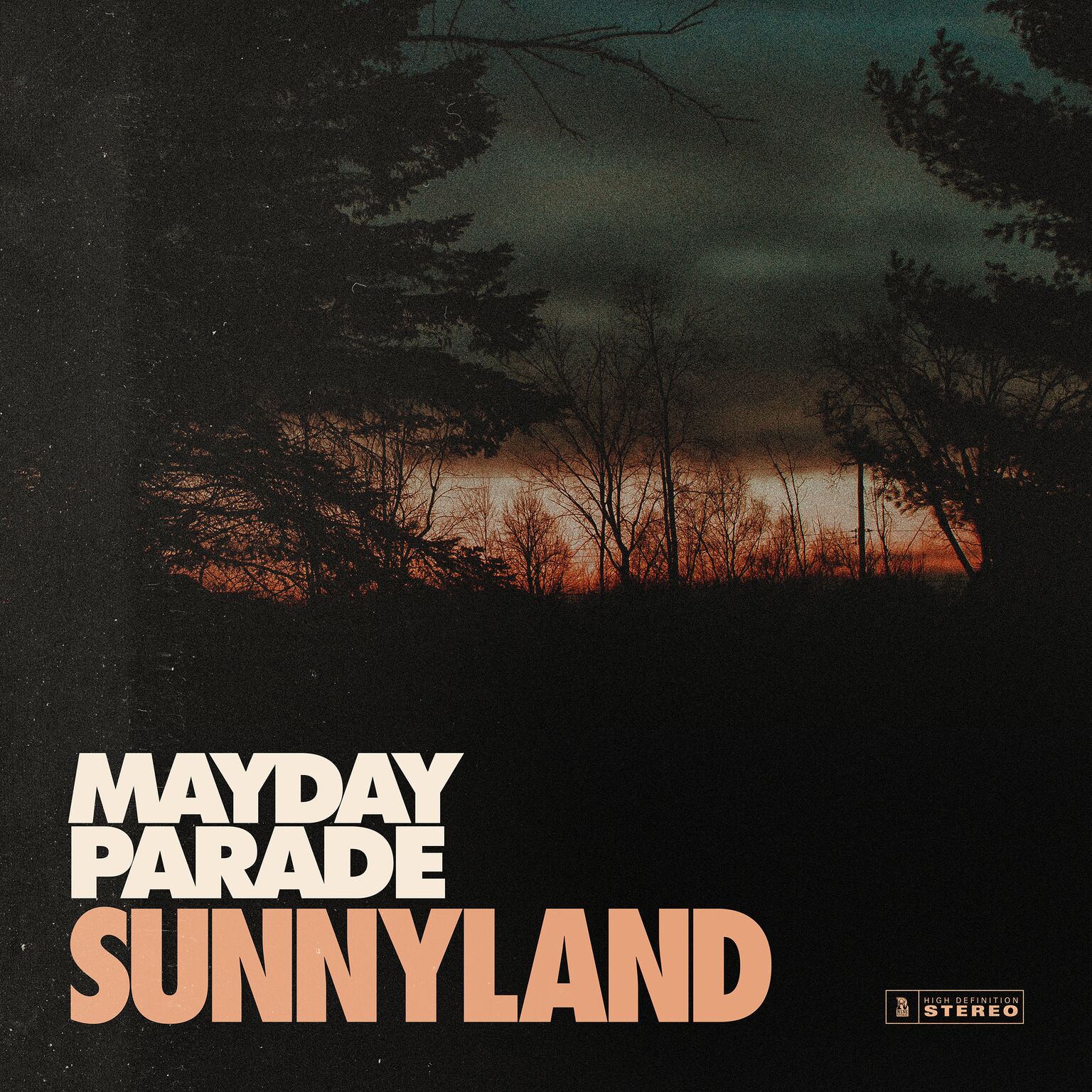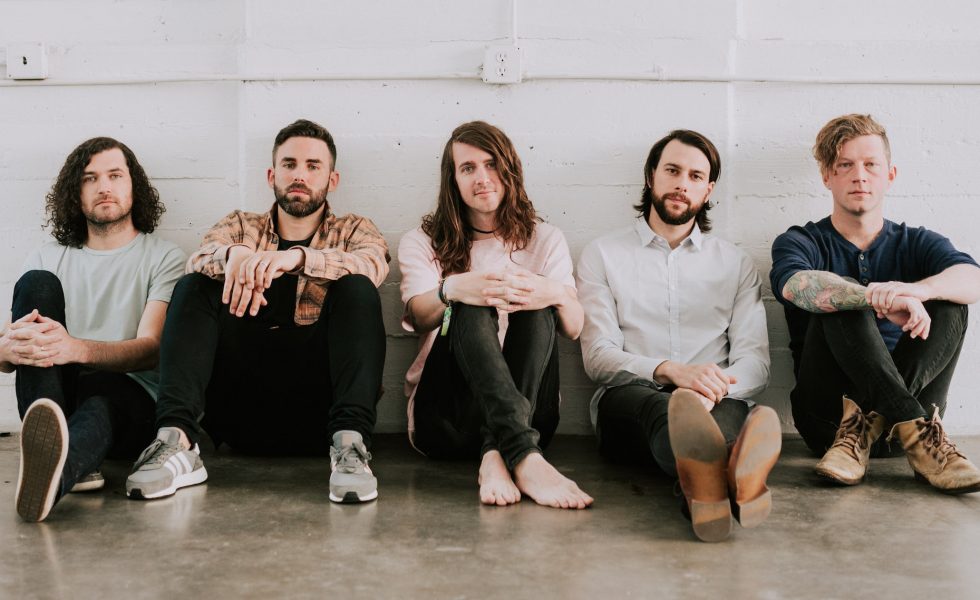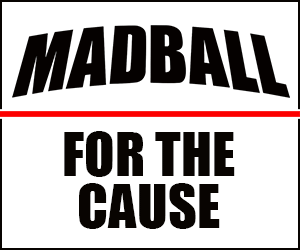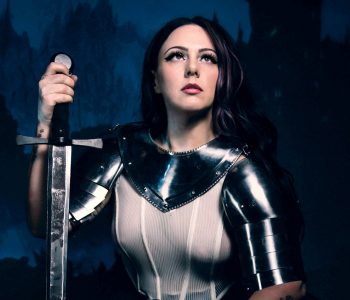Brisbane’s pop-punk upstarts Two Times Shy are soaring lofty heights as they let loose their …
We’ll be real with y’all: so long as it’s not like the one depicted in their recent string of music videos, we’d probably join a cult dedicated to Mayday Parade.
Their latest record is the bright and boisterous Sunnyland, which sees the Tallahassee alt-rock angels in their most refined, yet most honest and unremitting configuration to date. It’s a whirlwind of emotions from soaring happiness to soul-crushing melancholy, self-contained in a pop-punk weatherlock with raindrops of punchy rock and glittery pop slinking through. Desperate to travel a bit further into the magical and musical world that Mayday Parade have bellied up on Sunnyland, we got together with lead guitarist Alex Garcia for a nice little tour of the joint.
Sunnyland is out! Congratulations!
Thank you!
First thing’s first, what exactly is the significance of that title?
It came from one of the songs on the album. Derek wrote the song, but from what I gather, it’s kind of about your youth, y’know—that little bit of nostalgia from your past and all of that. You’ll have to bear with me because it’s a bit of a longwinded story, but basically, growing up in Tallahassee, there was this abandoned hospital. It was the makeup of a little kid’s nightmares, and it was sitting in a lot for, like, forever. They tore it down and build condominiums after a while, but when we were in high school, it was kind of like ‘the thing to do’ to go there and just kind of poke around and look at all the creepy shit that was inside there. There were used gurneys just lying around…. It looked like something straight out of a Saw movie [laughs]. But anyway, I feel like that time and place in our childhood has stuck with us for so long, so that inspired the song. And then we decided to use it for the album title because I mean, even just the name of the hospital itself was kind of ironic, y’know? It was an abandoned mental hospital for children with a very depressing and creepy, dark past, but it had this very innocuous and happy, positive sounding name. So that juxtaposition between that positive name and the kind of darkness that it held within was very inspiring, and we all felt that we could do a lot with that.
Does that carry into much of an overall theme for the album?
I wouldn’t say there’s one overall theme—at least not intentionally. It’s just how Mayday Parade is as a band, where we all write songs about whatever we’re thinking or whatever everyone is feeling at the time. Those are the songs that everyone likes the most, and that’s usually what ends up making the record. We tend to write from real life experiences—there’s a lot of heartbreak; there are a lot of negative feelings that come into play with playing in a band and touring and being away from your family. All of that is very typical for Mayday, and that’s how we’ve always done our albums.
This record did see one major shakeup, though, because since Anywhere But Here back in 2009, Mayday Parade has dropped a new album every two years, every time in October. What made you want to hold this one back a little longer?
Well, it was more of a necessity for our schedule. We did a long tour in the US a year ago—the ten-year anniversary shows for A Lesson In Romantics—and then we did that same tour overseas; we went to Australia and the UK and Europe. That kind of ate into our time and the schedule that we normally use to write and record an album. We had done a little bit of writing together before the Lesson tour in the US, and then after that tour, we did some more writing and we actually started recording some of it, then we did all of the international stuff, and then we finished the record in December. It is a bit weird—I know we’re very scheduled and have a very solid routine with our releases and everything, but yeah, the Lesson tour really kind of disturbed that. But y’know, I think it’s good! It’s helping us out with touring here in the States—we’ve got the Warped Tour coming up, and this will be the first time since we actually released A Lesson In Romantics that we’ll be releasing a record right before we do the tour. Hopefully that’ll be an added bonus for our fans.
We had to go, “Well, the last record was kind of a departure from what people knew Mayday Parade to be; maybe we should consider that.”
[ALEX]
So is the new trend to have an album out every three Junes?
I’m not sure. I mean, every band kind of has a cycle of how they operate, depending on the varied success that they may get from an album. But everything’s generally pretty stable for us, so it takes about two years to go through our cycle—that’s from writing an album and recording it, to then taking a couple months off so that the label or whoever can start to promote it and get everything ready for the rollout, and then touring off of it. Y’know, we’ll do maybe one or two US tours, an international tour and then maybe some little things here and there, and then that’s it, and that usually takes about two years, from beginning to end. But who knows? Maybe! The hope is that this album will do extremely well and we’ll be able to keep touring off of it, and keep releasing new singles and videos until there’s nothing left to do. That’s the dream. That’s what happens when you see bands that haven’t released an album in forever, because they’ve just been touring off a very successful album.
Six LPs in, was it important that Sunnyland would stand out from the rest of your discography?
I think people view the last album we did, Black Lines, as a departure from our sound, if you will. Personally, I don’t really agree with that, but I can understand where they’re coming from. So I think this time around, it was very much in the back of everyone’s mind—I wouldn’t say it dictated our decisions, but we were definitely thinking about it from time to time. We had to go, “Well, the last record was kind of a departure from what people knew Mayday Parade to be; maybe we should consider that.” And then obviously, y’know, we were touring off the ten-year anniversary of A Lesson In Romantics. Seeing how well that went over was kind of a reminder of why that album is still our most popular to date. So I think the whole process was kind of a balance between trying to keep exploring what we did with the last album—because everybody in the band is still very proud of that album and liked the direction we went in—but also, y’know, what makes Mayday Parade… Mayday Parade. The things that our fans love about us and expect from us, and what we love about ourselves as well. We all have very different tastes in the band, but I think we can all agree on that sound as something that we all really enjoy.
In terms of style, Black Lines had a good mix of heavy, poppy, jammy, slow, and everywhere on the spectrum inbetween. Can we expect the same kind of spread on Sunnyland, or is it a little more keyed in on one sound?
Like I said, the best way that I think about it is as a good balance between both ends of the spectrum. It’s not a straight-up pop-punk record—there are songs like that on the album, for sure, but then there are also songs that are very much in line with Black Lines—the more experimental sounds, and the more aggressive and raw kind of stuff we were doing on that record. I think there are definitely songs on the album like that. But I don’t know, my opinion on it all is only one part of a much larger puzzle. I’m constantly blown away by how our fans view things; I was reading some comments on the Piece Of Your Heart video, and to me, Piece Of Your Heart is a very, very different song—I don’t feel like that’s a very typical Mayday Parade song at all—but all these Mayday Parade fans were like, “Oh, this is such a return to form for the band!” And I disagree, but y’know, maybe that just goes to show how out of touch I am with how people view the band.
I’m very happy that everyone in the band is willing to take risks, and I think we do a good job of balancing all these things out so that we’re not going too far in one direction or alienating our fanbase.
[ALEX]
I think that it’s a new sound—I don’t want to say it’s necessarily a pop record, but there’s a much bouncier sound. But in saying that, it also has some of that classic flavour.
I completely agree. I think you’ve hit the nail on the head with that poppiness—for me, it’s very poppy. It’s more pop than I would say we’ve ever done in the past, and I think we definitely experimented with that on this record. It was like we were going in the opposite direction with Black Lines; by experimenting, we went to this kind of jammy and very raw, aggressive sound—what you would typically think when you think ‘experimental’. And with this one, I think we still experimented, but I think we kind of went in more of a mainstream direction; I mean, people say that in a majorative sense, but I mean it in the sense that, like, we tried to view the songs on a different kind of playing field than we normally would, which I think is great. I’m very happy that everyone in the band is willing to take risks, and I think we do a good job of balancing all these things out so that we’re not going too far in one direction or alienating our fanbase.
When can we expect to see Mayday Parade back on Australian stages?
Oh man, not soon enough [laughs]. We’re not sure yet. We’re in the process of figuring out when we can make it over there, but I love touring in Australia, as does everyone else in the band. The country is incredible and the fans are wonderful, and I’ve always had amazing experiences there. Hopefully as soon as possible, because I really want to get back down!
Sunnyland is out now via Rise Records.
You can grab a physical copy now from their webstore, or digitally from iTunes, Google Play or Spotify.






